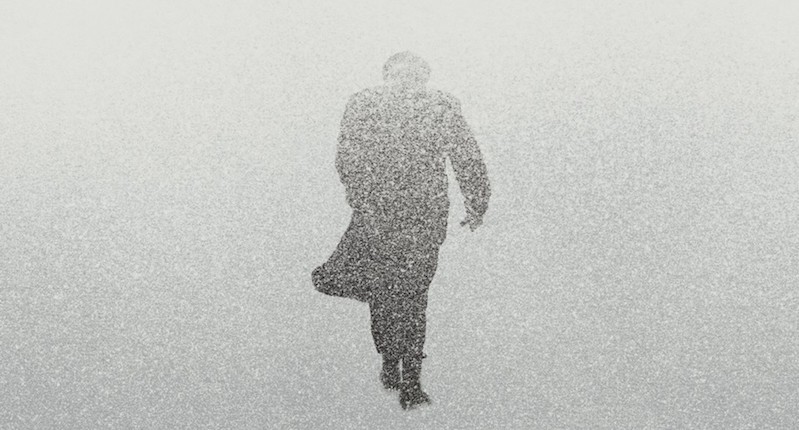
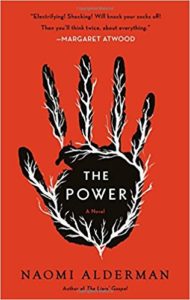
1. The Power by Naomi Alderman
(7 Rave, 2 Positive)
“Alderman has written our era’s Handmaid’s Tale, and, like Margaret Atwood’s classic, The Power is one of those essential feminist works that terrifies and illuminates, enrages and encourages … In her acknowledgments, Alderman thanks Margaret Atwood, Karen Joy Fowler and Ursula Le Guin — possibly the most brilliant triumvirate of grandmothers any novel has ever had. That lineage shows in this endlessly surprising and provocative story that deconstructs not just the obvious expressions of sexism but the internal ribs of power that we have tolerated, honored and romanticized for centuries.”
–Ron Charles (The Washington Post)
Read an interview with Naomi Alderman here
*
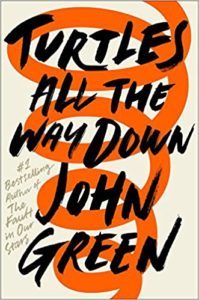
2. Turtles All the Way Down by John Green
(4 Rave, 3 Positive)
“Turtles All the Way Down, is somehow far darker, not so much because of the subject matter — though that’s dark too — but because of how he chooses to write about it. This novel is by far his most difficult to read. It’s also his most astonishing … I still wasn’t prepared for the ending of this novel. It’s so surprising and moving and true that I became completely unstrung, incapable of reading it to my husband without breaking down.”
–Jennifer Senior (The New York Times)
*
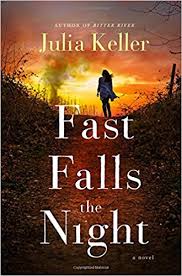
3. Fast Falls the Night by Julia Keller
(4 Rave, 1 Positive)
“Julia Keller doesn’t pull any punches in Fast Falls the Night. In the course of a single day, there are 33 overdoses (three of them fatal) in Aker’s Gap, the Appalachian town in West Virginia where she sets all her regional mysteries. The putative cause of this horrendous business is a batch of tainted heroin … The plot pretty much consists of waiting for the next OD victim to keel over, but Keller does a terrific job of rubbing our faces in the troubles of her hometown — of America’s hometowns.”
–Marilyn Stasio (The New York Times Book Review)
*
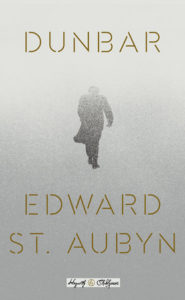
4. Dunbar by Edward St. Aubyn
(2 Rave, 5 Positive, 1 Pan)
“An author whose books are brutal and exquisite novels of inheritance, wealth, families, and cruelty, he has never hesitated to inflict pain on his audiences, and the result here is a moving, brutal and apt adaptation of the play for the Hogarth Shakespeare series … St. Aubyn is one of the few authors I can think of whose novels are magnificent in spite of not having something I always assumed was necessary in great novels: generosity and empathy for people outside the protagonist. In fact, perhaps one reason King Lear suits him so beautifully is because no one in the play has anything like the pull of Lear himself, just as no one stands up to Patrick Melrose in St. Aubyn’s autobiographical novel.”
–Annalisa Quinn (NPR)
*
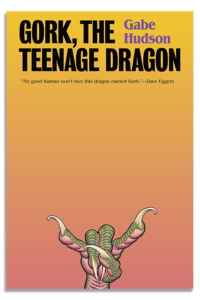
5. Gork, the Teenage Dragon by Gabe Hudson
(1 Rave, 6 Positive, 1 Pan)
“Any good-hearted, whimsy-favoring reader, from acned to aged, who delights in chaotically fantastical or fantastically chaotic narratives involving the quest for one’s authentic identity and place in the world will surely enjoy Gabe Hudson’s debut novel … Gork, the Teenage Dragonoffers us the insights and pleasures of seeing an absurdist, more savage version of our own bestial arena, a vision that makes us rethink our own default derangements.”
–Paul Di Filippo (The Barnes & Noble Review)
Read an essay by Gabe Hudson here
**

1. Grant by Ron Chernow
(12 Rave, 2 Positive, 1 Mixed)
“Chernow rewards the reader with considerable life-and-times background, clear-eyed perspective, sympathy that stops short of sycophancy, and gritty and intimate details … Along with industrialization, continental expansion, and the rise of mass consumerism, the principal theme in this biography, as in the years of Grant’s life, is the role of the African-American in our history, culture, and economy … In this era, when the meaning, impact, and statues of the Civil War-era are undergoing fresh evaluation, Grant very likely will emerge unscathed. The Chernow biography assures his place in the American pantheon for decades to come.”
–David M. Shribman (The Boston Globe)
*
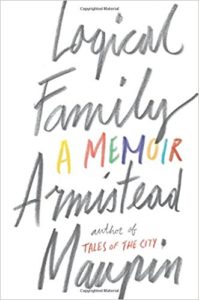
2. Logical Family by Armistead Maupin
(4 Rave, 4 Positive, 1 Mixed)
“…the heart of the book comes through when Maupin’s worlds collide: His parents happen to be in town for a visit when Harvey Milk and Mayor George Moscone are assassinated. The sorrow of watching his Republican father at an emotional memorial for a great figure, a victim of homophobia, suddenly turns the narrative into a heartrending portrait of redemption … Engaging and revelatory, Maupin’s memoir is a delight, punctuating a distinguished career in letters.”
–Rigoberto González (The San Francisco Chronicle)
Read an excerpt from Logical Family here
*
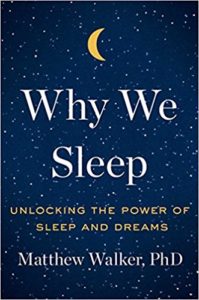
3. Why We Sleep by Matthew Walker
(2 Rave, 5 Positive)
“One of the book’s real strengths is how clearly it elucidates the extent of the damage wrought by our collective ignorance of the importance and complexity of sleep’s role in our lives, and the difficulty encountered by many of us in getting any … The book bears a sobering and vital message, too, about the centrality of sleep to the proper development of young minds … Despite the direness of his warning, Walker’s tone is mostly chipper and likable in the standard pop-sci style, and he is excellent at explaining complex neurological phenomena for a general readership.”
–Mark O’Connell (The Guardian)
*
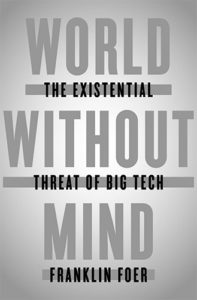
4. World Without Mind by Franklin Foer
(1 Rave, 6 Positive)
“The lives of Amazon’s Jeff Bezos, Facebook’s Mark Zuckerberg, and Google’s Larry Page and Sergey Brin leap from the pages of World Without Mind, as Foer conjures concise, insightful psychological profiles of each mover-and-shaker, detailing how they’ve mixed utopianism and monopolism into an insidious whole … World Without Mind is a searing take, a polemic packed with urgency and desperation that, for all its erudition and eloquence, is not afraid to roll up its sleeves and make things personal.”
–Jason Heller (NPR)
Read an interview with Franklin Foer here
*

5. This Blessed Earth by Ted Genoways
(1 Rave, 4 Positive)
“In his compelling narrative, journalist Genoways gives the reader a kitchen-table view of the vagaries, complexities and frustrations of modern farming, beginning with the 2014 harvest, when the Hammonds were ‘wrestling with how to run the farm in the future’ … Insightful and empathetic, Genoways interweaves the family’s personal stories, with the factors impacting their decision making.”
–Elfrieda Abbe (The Milwaukee Journal Sentinel)
**
Poetry Bonus
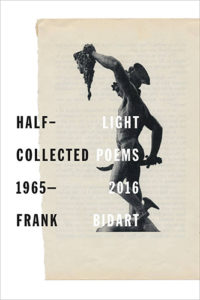
Half-Light by Frank Bidart
(5 Rave)
“Made up of the seventy-eight-year-old author’s eight previous volumes of verse and a new sequence—the bold and elegiac ‘Thirst’—Half-Light is both the culmination of a distinguished career and a poetic ur-text about how homophobia, doubt, and a parent’s confusing love can shape a gay child … Bidart’s poems are a kind of séance, one in which he tries to invoke and communicate love, even if that love can no longer be achieved, tasted, seen, touched. The poems that Bidart wrote for his lost ones are a testament to the conversations he holds in his head, written with force from the confines of a limitless gay body.”
–Hilton Als (The New Yorker)

